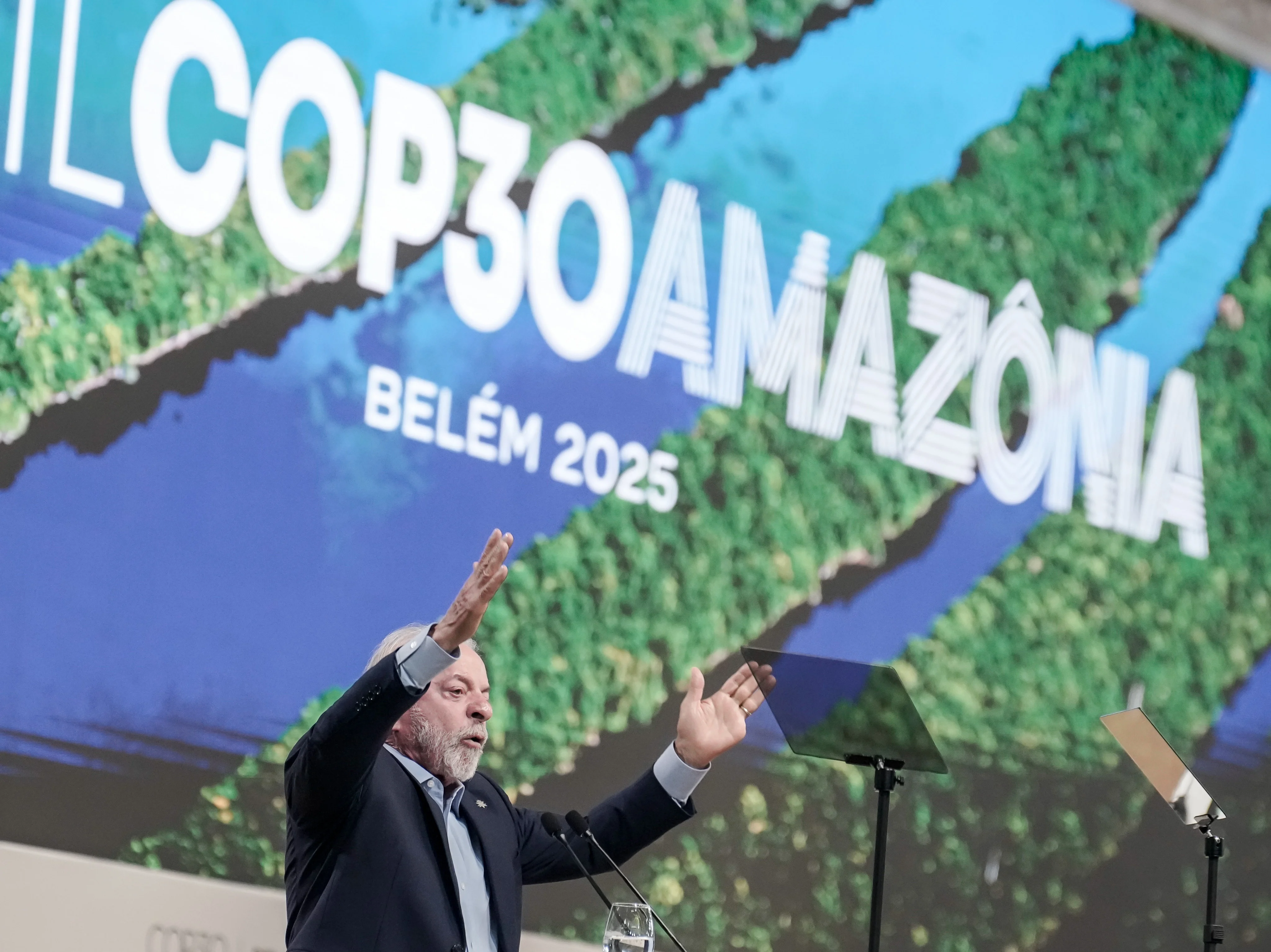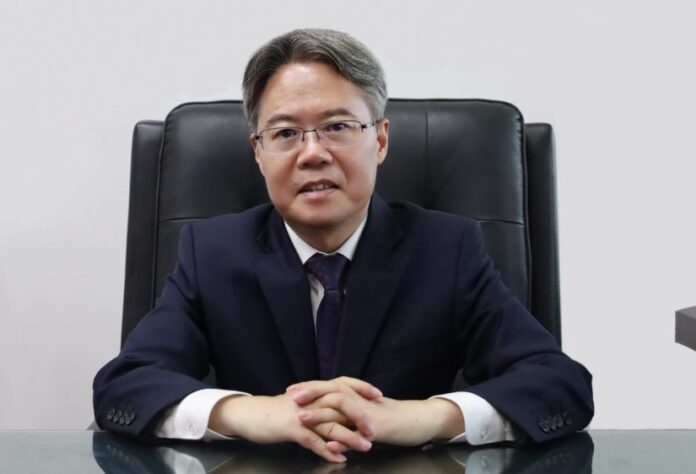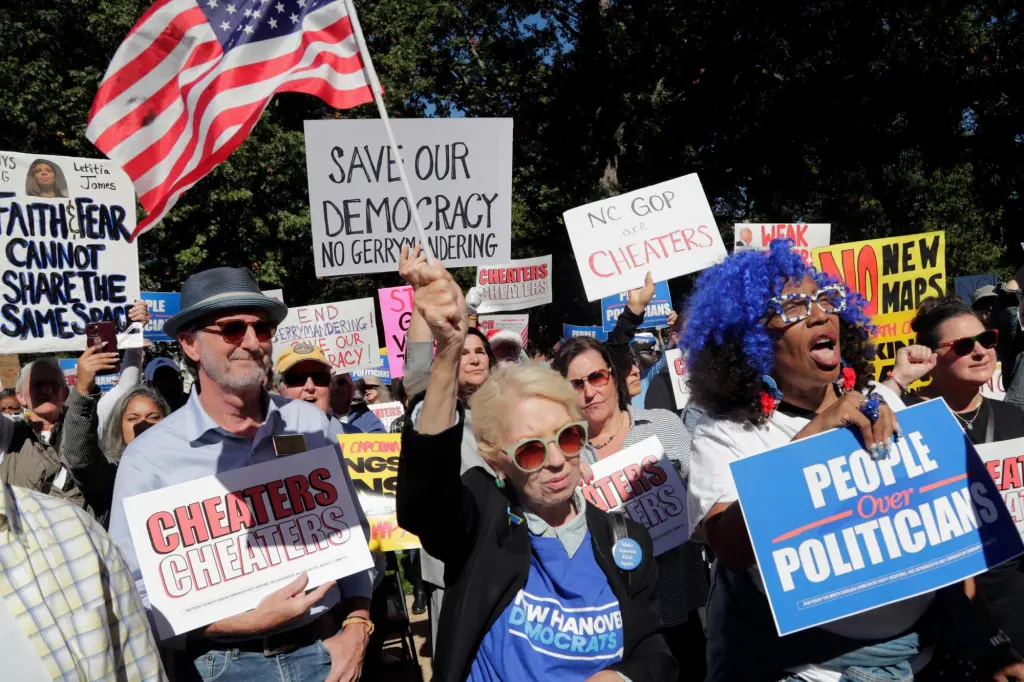Copyright scmp

Brazilian President Luiz Inacio Lula da Silva kicked off the Cop30 climate summit on Thursday, urging leaders to turn promises into action while highlighting his country’s work within the Brics group to reaffirm the importance of climate finance, capacity building and technology transfer in global cooperation. The meeting comes amid the notable absence by the United States. President Donald Trump, who ordered the country’s withdrawal from the Paris Agreement in January, declined an invitation from Lula in October to attend the conference. Washington also opted not to send any diplomats to the talks, a stark contrast to the robust Chinese delegation of 300 members from various ministries as Beijing seeks to fill the void left by the US in climate negotiations. Speaking in Belem, deep in the Amazon rainforest, Lula called the gathering “the COP of truth,” and said nations must decide whether they have the courage and determination to change course. He framed the conference as a decisive moment for governments to bridge the gap between political speeches and the worsening effects of droughts, floods and deforestation. The Brazilian leader said the Amazon, home to millions of people and unmatched biodiversity, embodies the tension between prosperity and preservation. He said its residents live daily with the consequences of climate change and have the right to demand stronger commitments from the rest of the world. Lula emphasised that the return of the UN climate conference to Brazil, three decades after the 1992 Earth Summit in Rio de Janeiro, comes at a time when multilateralism itself is being tested. He said global cooperation must overcome short-term rivalries and self-interest to restore credibility to international climate policy. Brazil’s coordination within multilateral groups, he said, has strengthened calls for fair climate financing and technological cooperation among developing countries. “For Brazil, Cop30 will be the culmination of a path paved throughout our presidencies of the G20 and Brics. At the G20, we brought together the environment and finance ministries of the 20 economies that account for around 80 per cent of global emissions,” Lula said. “At Brics, we reaffirmed the centrality of climate finance, capacity building and technology transfer as essential for a just energy transition.” At the Brics summit in Rio de Janeiro in July, climate finance dominated discussions for the first time, with leaders adopting a Framework Declaration on Climate Finance that called on developed nations to deliver “fair and equitable” funding to support mitigation and adaptation in the Global South. Negotiated under Brazil’s presidency, the document reaffirmed the principle of “common but differentiated responsibilities”, a key concept of global climate negotiations that says all countries share a duty to act but that richer nations must take the lead and bear a greater share of the costs because of their historical emissions. The expanded grouping, which now includes Indonesia, Saudi Arabia, Egypt, the UAE, Ethiopia and Iran, also approved a 2025–2030 energy cooperation road map centred on a “just energy transition”, balancing decarbonisation goals with energy security and development priorities. The Rio summit also endorsed Brazil’s proposal to create the Tropical Forests Forever Facility, a fund designed to reward countries for preserving rainforests and other ecosystems. Beijing has voiced consistent political support for the fund but has not yet pledged a financial contribution. In September, Chinese Environment Minister Huang Runqiu praised Lula’s initiative, saying the fund is “an innovative instrument for sustainable development”. But Brazilian diplomats told the Post they are engaging with Beijing “almost on a daily basis” to convince China of the fund’s viability. On Wednesday, Lula met Chinese Vice-Premier Ding Xuexiang, who is heading the Chinese delegation to Cop30, to discuss green investment opportunities and climate cooperation. During the meeting, Lula urged Beijing to join financing initiatives for clean energy and resilience projects, while Ding reaffirmed China’s support for Brazil’s leadership in hosting the talks, according to officials familiar with the discussions. The tone of that bilateral carried into the plenary, where the vice-premier expanded on Beijing’s approach to climate cooperation. Ding praised Brazil’s leadership and said China considers the conference to be a pivotal moment, coinciding with the 10th anniversary of the Paris Agreement and what he called a “critical phase for delivering on its goals”. He highlighted China’s early achievement of its 2030 targets, including surpassing planned capacity for wind and solar power and expanding total forest stock, and noted the nationally determined contributions announced by Chinese President Xi Jinping at the United Nations in September. Ding said Xi’s move reflected China’s “determination to contribute at the highest level”. Climate experts, however, questioned whether the new targets are ambitious enough to slow global warming. Under the plan released by Beijing, China aims to cut total greenhouse gas emissions by 7 to 10 per cent from their peak by 2035, well below the roughly 30 per cent reduction scientists say is needed to meet the UN’s mitigation goals. The vice-premier also referred to the decisions adopted at the Communist Party’s recent fourth plenary session, which set priorities for the next five-year plan focused on cutting emissions, curbing pollution and strengthening ecological security as part of a broader strategy for green growth. China, he added, “is a country that honours its commitments” and will accelerate the green transition across all sectors of its economy and society. “The key to addressing climate change lies in taking action,” Ding said, urging all parties to fully implement the Paris Agreement and uphold “international fairness and justice” in carrying out their pledges. The emphasis on action and shared responsibility echoed throughout the summit’s opening addresses, framing the debates that followed over how to turn collective ambition into measurable outcomes and funding commitments. In his speech, Lula also pressed for concrete financial targets as Cop30 gets under way, saying that “ambition without financing is an empty promise”, slamming the inertia of wealthier nations and the slow pace of international collective action. The planet’s average temperature rose more than 1.5 degrees Celsius above pre-industrial levels for the first time in 2024, Lula cited, and United Nations data projects a rise of up to 2.5 degrees by the end of the century. “The window of opportunity for action is closing quickly,” he said. The Brazilian president urged governments to restore trust through cooperation and closed his address invoking an Amazonian belief of the Yanomami people that humans must hold up the sky to keep it from falling, presenting it as a metaphor for shared responsibility. “Our task is to push the sky upwards and expand our horizon beyond what we see today,” he said.



